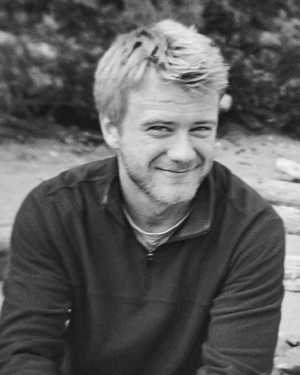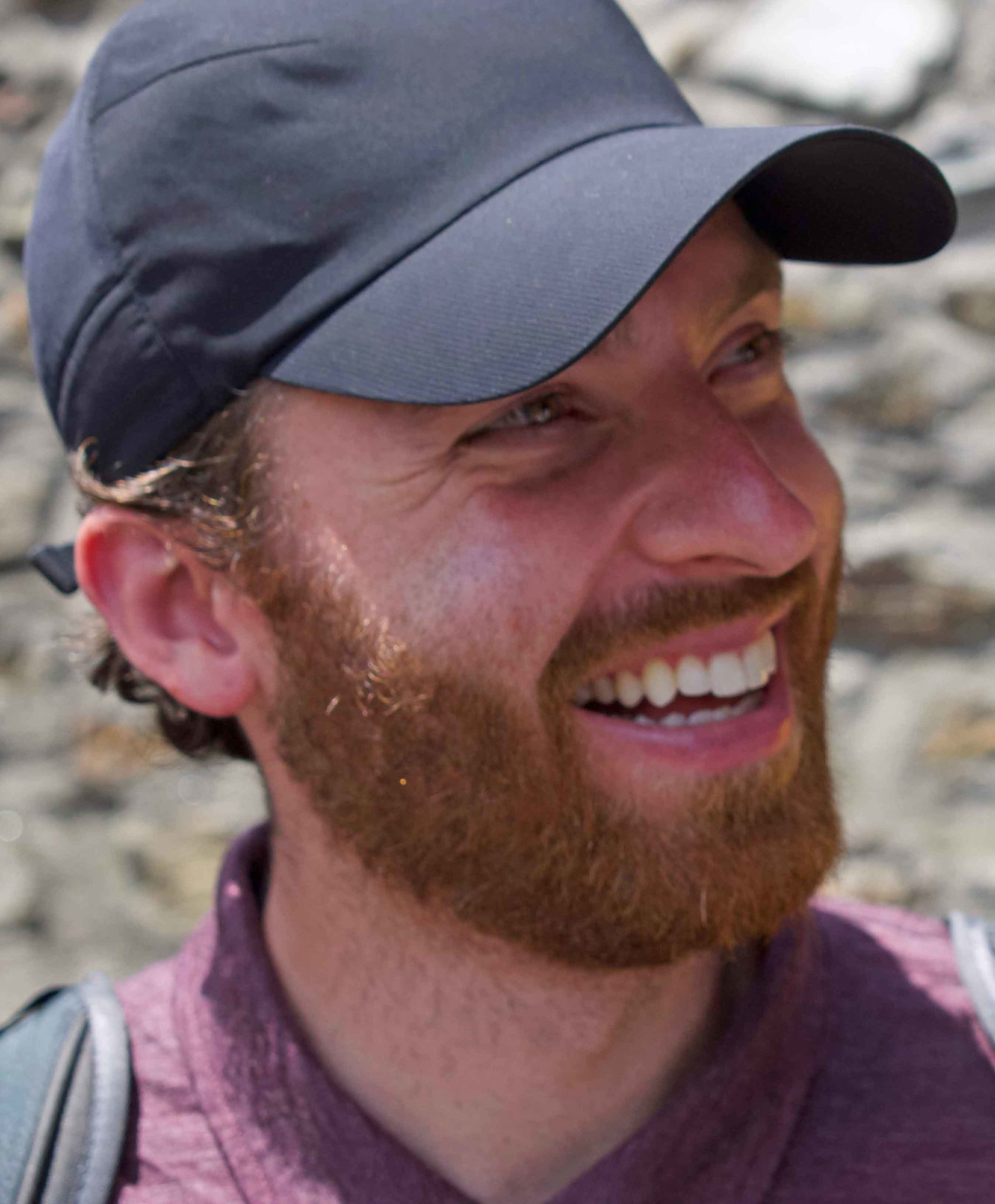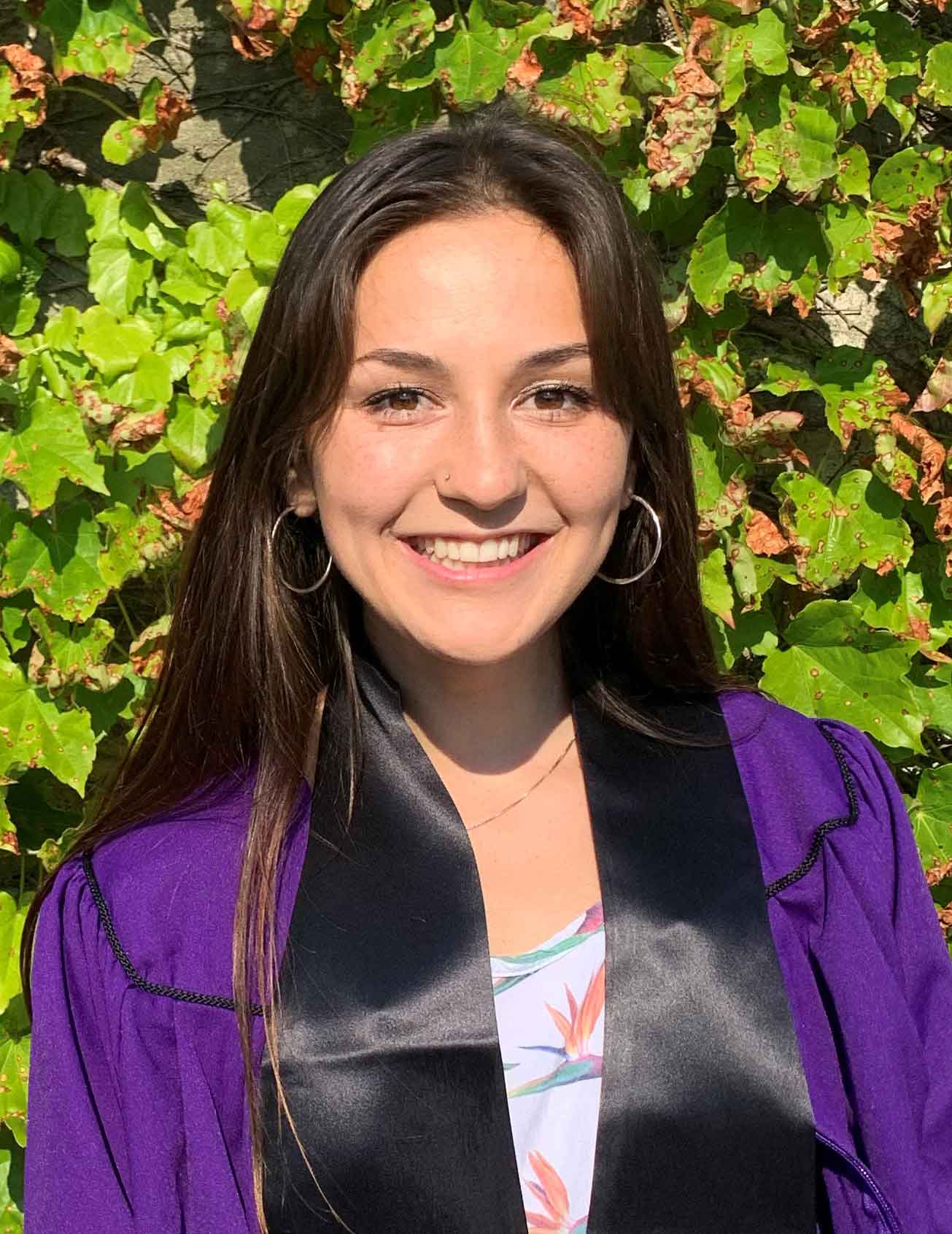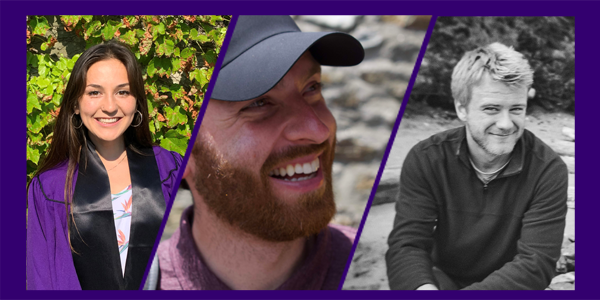Watch for more news soon about our four newest NSF Graduate Research Fellows: Chelsea Gibbs, Nicole Gregorio, Samantha Koplik and Susana Simmonds!
Bioengineering Ph.D. students Clinton Heinze, Trey Pichon and Olivia Prado are the department’s 2020 recipients of the prestigious National Science Foundation Graduate Research Fellowships.
The fellowship recognizes and supports outstanding graduate students in NSF-supported science, technology, engineering and mathematics disciplines who are pursuing research-based master’s and doctoral degrees at accredited United States institutions.
The $138,000 fellowship award provides an annual $34,000 stipend for three years, plus a $12,000 tuition allowance to the university. Fellows also gain opportunities for international research and professional development, along with the freedom to conduct their own research.
Find details below about the research Clinton, Trey and Olivia are pursuing.
NSF 2020 Graduate Research Fellows in BioE
Clinton Heinze
 Ph.D. student Clinton Heinze works with both Professor of Bioengineering Suzie Pun and Dr. Michael Jensen at Seattle Children’s Research Institute to develop new cancer therapies. Clinton is working to develop a novel, safe way to target any type of cancer using a chimeric antigen receptor (CAR) T-cell. CAR T-cell therapy uses a patient’s own immune cells to recognize and kill cancer cells. To do this, Clinton is designing new receptors that can target chemical antigens on cancer cells, and he is using biomaterials to limit the toxic effects of the CAR T-cells to the microenvironment of the tumor cells to reduce side effects.
Ph.D. student Clinton Heinze works with both Professor of Bioengineering Suzie Pun and Dr. Michael Jensen at Seattle Children’s Research Institute to develop new cancer therapies. Clinton is working to develop a novel, safe way to target any type of cancer using a chimeric antigen receptor (CAR) T-cell. CAR T-cell therapy uses a patient’s own immune cells to recognize and kill cancer cells. To do this, Clinton is designing new receptors that can target chemical antigens on cancer cells, and he is using biomaterials to limit the toxic effects of the CAR T-cells to the microenvironment of the tumor cells to reduce side effects.
Clinton earned his bachelor’s in biomedical engineering from the University of Wisconsin-Madison. During his time in college, he has served as a teacher and mentor for elementary and high school students and as a university-level tutor. While at UW, Clinton also received an ARCS Foundation Fellowship in support of his achievements in research. When he gets the time, he enjoys outdoor sports, including backpacking and playing Ultimate Frisbee.
After completing his degree, Clinton hopes to continue working with CAR T-cells in industry. “Ideally, I want to continue my work at the interface of cellular engineering and material science at an established biopharmaceutical company or with a startup,” he says.
Trey Pichon
 Trey is a Ph.D. student developing new drug delivery technologies in Professor Suzie Pun’s lab. His main research is focused on the translation of an intravenous, hemostatic polymer known as PolySTAT, which is used to stop uncontrolled hemorrhaging due to traumatic injuries. This is a joint project in collaboration with Dr. Nathan White from Emergency Medicine at Harborview Medical Center. Additional smaller projects focus on synthesizing novel polymer-peptide conjugates for a wide range of applications, such as tissue engineering, cancer therapies and central nervous system drug delivery.
Trey is a Ph.D. student developing new drug delivery technologies in Professor Suzie Pun’s lab. His main research is focused on the translation of an intravenous, hemostatic polymer known as PolySTAT, which is used to stop uncontrolled hemorrhaging due to traumatic injuries. This is a joint project in collaboration with Dr. Nathan White from Emergency Medicine at Harborview Medical Center. Additional smaller projects focus on synthesizing novel polymer-peptide conjugates for a wide range of applications, such as tissue engineering, cancer therapies and central nervous system drug delivery.
After earning bachelor’s and master’s degrees with a focus in polymer science from the Georgia Institute of Technology, Trey worked in the biopharmaceutical industry on new product development at W.L. Gore & Assoc. At Gore, he mentored high school students and served as an English language tutor and diversity mentor to the company’s Latino Hispanic Business Network. At UW, he mentors graduate students through Bioengineers Without Borders and serves on their Leadership Team. In 2019, he served as teaching assistant for the study abroad program, Bioengineering Nepal: Technology Development for Global Health. Trey was named to the 2020 Husky 100 in recognition of his leadership, inclusion, innovation and contributions to the UW community.
Trey plans to return to industry when he completes his degree. “I would like to leverage both my material science and bioengineering background to develop next-generation therapies,” he says. “I am also using my time at UW to think about and explore how to incorporate global health into my career path. Finally, I really enjoy working with and mentoring students, so after my time in industry, I plan to return to academia to teach.”
Olivia Prado
 Ph.D. student Oliva Prado works to create complex vascular networks in artificial liver tissues. She is part of Assistant Professor Kelly Stevens’ lab, which works to build artificial human tissues from stem cells, and to remotely control these tissues after implantation in a patient. Olivia is currently working on vascularization in hepatic hydrogels to promote controlled vascularization and growth after implantation.
Ph.D. student Oliva Prado works to create complex vascular networks in artificial liver tissues. She is part of Assistant Professor Kelly Stevens’ lab, which works to build artificial human tissues from stem cells, and to remotely control these tissues after implantation in a patient. Olivia is currently working on vascularization in hepatic hydrogels to promote controlled vascularization and growth after implantation.
Olivia joined the Stevens lab in the fall of 2020, after graduating from Northwestern University, where she earned a bachelor’s in biomedical engineering with an additional major in global health studies. She brings with her research experience in developing microfluidic components that enable real-time hydration feedback for soft, wearable microfluidic devices. While at Northwestern, she co-founded the university’s first regenerative engineering competition and supported fellow undergraduates both in creating research projects for the competition and in navigating the academic environment.
In the coming years, she hopes to continue/expand her research in engineering vascularized artificial tissues that promote regenerative processes and growth. Looking to the future, after earning her degree, she plans to continue working toward the development of engineered organs and organoids while fighting for improved access, equity and support structures for BIPOC [Black, Indigenous and people of color] in STEM. Since arriving at UW, Olivia has been working with BioE’s Justice, Equity, Diversity and Inclusion (JEDI) committee on developing a mentorship program and creating a safe, supportive community for BioE students.



